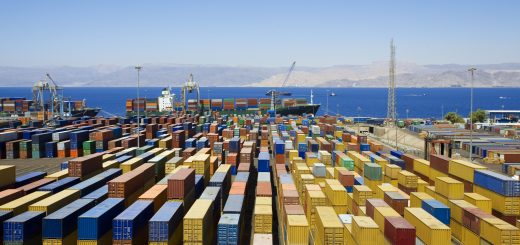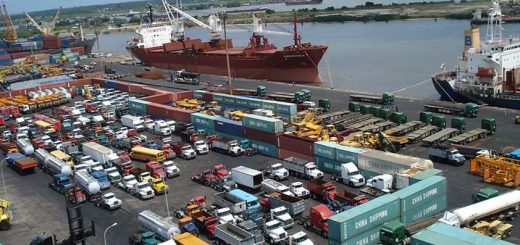The Line Between Logistics Excellence & Failure

There is a thin line between excellence and failure in logistics. Thin in the sense that the slightest slip from what appears to be excellent can easily result in an instant failure. Logistics excellence goes way beyond having all the human and material assets required to succeed. It can become and remain elusive if attention to even the minutest detail of customer needs or expectations are either ignored or haphazardly addressed. Having said that, we do understand that excellence and failure in logistics is facilitated by a combination of the following major (among many other) factors:
Understanding and Meeting Customer Expectation: The extent to which customer needs are understood and met is the key primary factor that determines excellence in service delivery. More than anything else, service providers must understand that customers pay for the value they offer before, during and after service delivery. Value for the customer can come in the shape of timely delivery, cost-effectiveness, almost zero error rate in an entire transaction, transparency and going the extra mile to satisfy the customer even in the face of low-profit margins.
Information & Communication Technology: The key connector of chains in the transaction process is communication. Seamless flow of Information is a key component of excellence in logistics and if poorly managed would automatically create process gaps that will ultimately lead to service failure. Businesses around the world are leveraging Information Technology to manage customer data; obtain quick feedbacks; manage end-to-end transaction flow; predict market trends and determine how to stay competitive.
Systems & Processes: Systems and processes are key facilitators of logistics excellence. While technological systems (for instance) require very efficient and creative processes to drive them, processes are key steps by step procedures that bring everything together under a structured, single plan that is defined across all departments to guarantee logistics excellence and avert potential failures.
Human Resources: More than material or financial resources, people are at the center of logistics excellence. It takes a team of excellent people to deliver excellently. People who can technically combine their skills, knowledge, the requisite attitude and ability to interact with established systems and processes are the greatest sureties for the delivery of logistics excellence.
FACTORS THAT PRECIPITATE LOGISTICS FAILURE
While a productive blend of all the key success factors stated above are pivotal to logistics excellence, the slightest slip can also precipitate service failures in the following ways:
Failure to meet Customer Expectation: This failure can be demonstrated in two distinctive ways. First, operational failures such as cargo handling deficiencies and lag in transit time will deem customer confidence and lead to dissatisfaction. If poorly addressed, the customer can pull the plug and terminate any business relationship between it and the service provider. Second, delivery failures can be prompted by uncontrollable factors like natural disasters, bad weather or other man-made factors like traffic jams, hijacks, etc.
Information Technology & Communication Failures: Service excellence in the 21st Century world relies so much on the end-to-end visibility that Information Technology provides. That is why the inability to provide technologically driven platforms for better customer engagement and visibility throughout transaction processes is always likely to lead to service failure. Customer information errors and the inability to provide informed advice or useful updates on cargo status to customers is a costly ticket to logistics failure -especially because logistics thrives on end-to-end flow of information. Another instance is wrong information on cargo origin, total value, description or classification provided by the client, will not only result in costly delays but will expose the service provider to reputational damage and risk of costly sanctions.
Human Resource Failures: Failure to deploy a productive blend of people with the right competencies, experience, and attitude or people who lack the ability to interact with established systems and processes will bring about fundamental errors in logistics. Such error is commonest in documentation. Documentation error occurs in the Bill of Lading, invoicing, cargo declaration or classification. This error is costly, not only in terms of the time it takes to resolve it but in terms of the financial fines or penalties and the potential loss of the customer. Booking error is another human resource problem that stems from poor attention to detail. Booking errors usually lead to costly delays since cargoes can be transported to wrong destinations as a result. Though booking error can be corrected before vessel or airline departure, the risk of incurring high cost can be very high. For instance, if you wrongly route a cargo destined for Nigeria from Houston to Nicaragua; once the cargo leaves the port of origin in Houston, it must get to Nicaragua before it can be re-booked and routed to Nigeria.
Since research has shown that a large majority of customers who depend on the services of third-party logistics providers pay for the quality of service offered, the question then is, why would any logistics provider elect to fail and not excel? If the goal of every logistics provider is to excel, what then can be done to achieve excellence and consistently maintain it in all circumstances?
Though the foregoing points have attempted to provide plausible answers to these questions, the reality is that even where logistics excellence is consistent, the risk of failure at some point (the thin line) remains very potent. That is why it is important to build and maintain key success factors and pay keen attention to potential risks of failure – not so that they will never occur – it’s so that they will rarely occur and if they ever do they can be swiftly addressed to maintain customer confidence.



